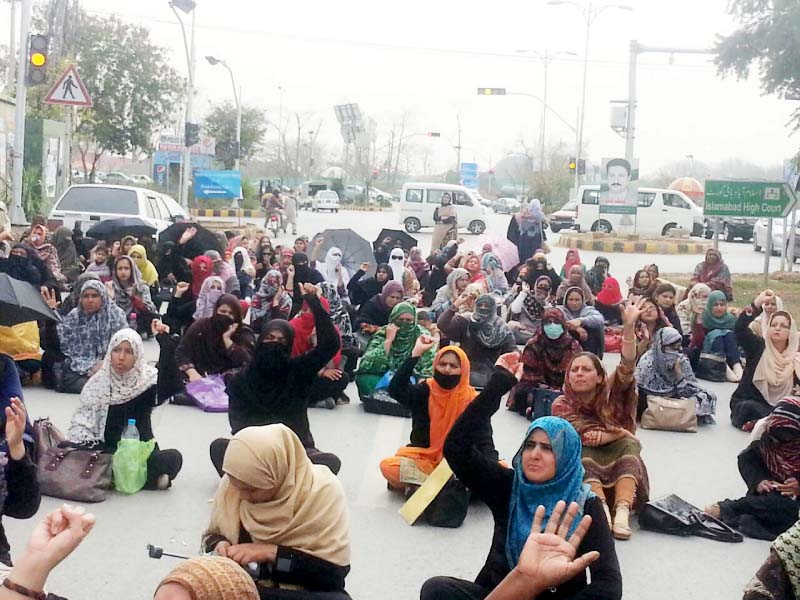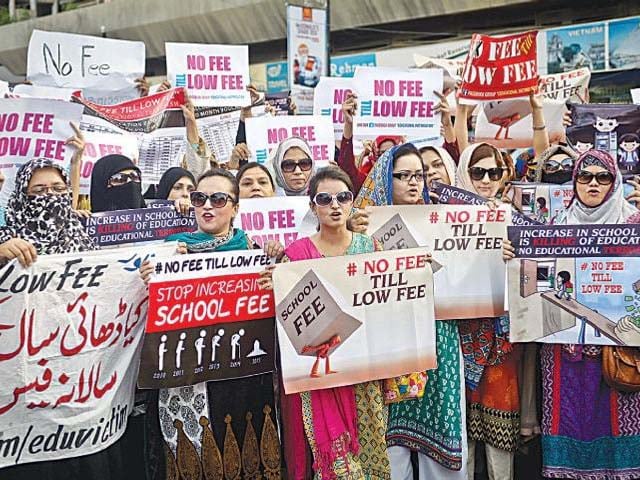
Nawaz Sharif’s UNGA Speech: Packing all the right punches in all the right directions
Despite the dismal state of domestic politics, Nawaz Sharif made sure the world knew what Pakistan expected of the UN.
For the past couple of weeks, the slight whiff of Prime Minister (PM) Nawaz Sharif’s possible talking points of his United Nations General Assembly (UNGA) speech cultivated a foreboding rather than being a good premonition. However, surprisingly enough and much to the unexpected delight of his nation, the prime minister proved a lot of people very wrong.
In his UNGA speech yesterday, he packed some pretty powerful punches in his less than 20 minutes of total speech time. He not only raised the issues that Pakistanis hoped he would highlight, but went a little beyond them by using just the right combination of words to launch a sharp, though sugar-coated, evaluation of what the UN is expected to do, but is no longer doing so.
The PM’s call for a ‘comprehensive reform’ of the UN including its Security Council must have made quite more than just a few in the audience gape at his gall. Saying that the requirement of the world was for a more “democratic, representative, accountable, and transparent” Security Council, was a clear jab at the disappointing performance of the UN at soliciting compromises and accords between squabbling countries.
Though the UN’s efforts have continually been criticised for being bootless for the past many decades, the PM openly suggested it was high time that it was no longer just an “expanded club of the powerful and privileged” and focused more on representing everyone’s interest in accordance with the principles of sovereign equality.
The absolute impotence of the UN in resolving critical issues was amply demonstrated as Russia launched airstrikes in Syria. This was Putin’s open defiance of what Barack Obama was suggesting. Not to be left behind, Palestinian President Mahmoud Abbas declared the Oslo agreement and all subsequent agreements with Israel null and void henceforth. These major turns of affairs even as the leaders sweet talked with each other at the UN headquarters only lends to absolute credibility to the PM’s point. The actual purpose of the UN needs to be revisited.
Rather than providing any structured resolutions towards ‘what to do in a major global crisis’, the agency is best consulted on ‘what not to do’ in a crisis. It is no longer the voice of reason that could motivate people to bring their differences to the table with the objective to forge serious accords. It only provides the table where nations do bring their differences, but only with the intention of testing the water to see who would be the mediator that could best serve their interest. And as the world has consistently witnessed, this mediator is rarely the UN itself.
Starting out with the mention of the general challenges faced by Muslim nations globally, including Daesh, he zeroed in on ground realities related to Pakistan. Not only was Zarb-e-Azb mentioned for what it was, “the largest anti-terrorist operation against terrorists anywhere” but Kashmir was referred to as what it really was as well – “a most persistent failure of the United Nations”.
Although Pakistan’s challenges in the region specifically with references to relationship with Afghanistan and China were also mentioned, the most detailed reference, as was expected, was related to the escalating skirmishes with India. However, here is where things took more than just a simple unexpected turn – they rocketed off with the PM offering India a four-point plan aimed at “cooperation not confrontation”.
This has been presented in the largest international forum and the PM has expressed a pointed desire to see more action from the UN rather than being just a club of the privileged. Hence the UN should have a hard time putting this plan on the back burner as it has been apt to do, with other pressing global issues. This will be more for the reason that two nuclear nations are at the crux of this argument. Though little is to be expected from the UN, the PM was at least crystal clear on what Pakistan wants.
In short, the four-point proposal includes total ceasefire on the Line of Control (LoC) and the United Nations Military Observer Group in India and Pakistan’s (UNMOGIP) monitoring of it, no use of force under any circumstances, demilitarisation of Kashmir, and calling for an “unconditional mutual withdrawal” from Siachen. The words of the proposal, and the entire speech in fact, were simple and clear and the tone remained assertive and assured, never dominating or commanding.
It is hard to gauge India’s reaction to the proposal. However, it is not hard to predict that the UN certainly won’t be the organisation that will become the bolstering force behind the implementation of even a part of this proposal. As has been UN’s record at intervention, it targets the immediate conflict and focuses on diffusing the immediate tension, rarely seeking to untangle the actual underlying cause of the dispute. This is demonstrated by the rejection of the Oslo peace accord by the Palestinians, the failure to halt fighting in Kashmir, and the devastating crisis in Syria.
As also been pointed out by the critics, the actual UN mechanism for arbitration and intercession is now out-dated. Devised in an era where nations were not dealing with borderless extremist/terrorist elements, the entire strategy needs to be revamped. This needs to be done so UN can serve the purpose that the world is hoping for but are convinced that it is no longer able to. Not because it does not have the means to do so, but simply because it fails to manage solutions commensurate with a newer breed of threats and issues.
If it really is so useless, why does the UN convene to have all these meetings, talks, speeches, and interviews?
So that leaders are able to see each other in person, hear their demands face to face, study their voice and tone, and then decide who to approach for the resolution of their specific issues. So much for the UN but as far as the PM was concerned, he was commendably successful in packing all the right kicks and punches in all the right directions.
Needless to say, despite his current run of bad luck at home and the dismal state of domestic politics, Nawaz Sharif made sure the world knew what Pakistan expected of the UN. He also clarified how far it was going, and willing to go, in order to maintain stability in the region and amicability between itself and its neighbours.




COMMENTS (33)
Comments are moderated and generally will be posted if they are on-topic and not abusive.
For more information, please see our Comments FAQ